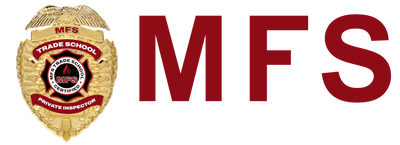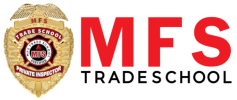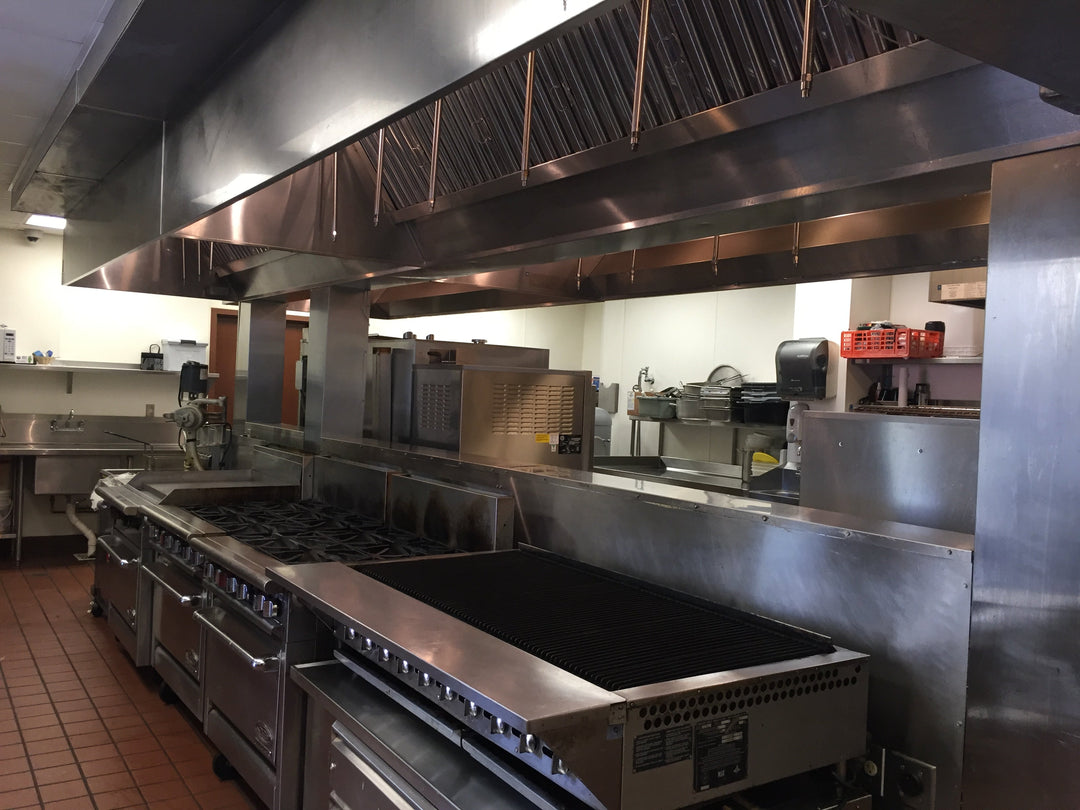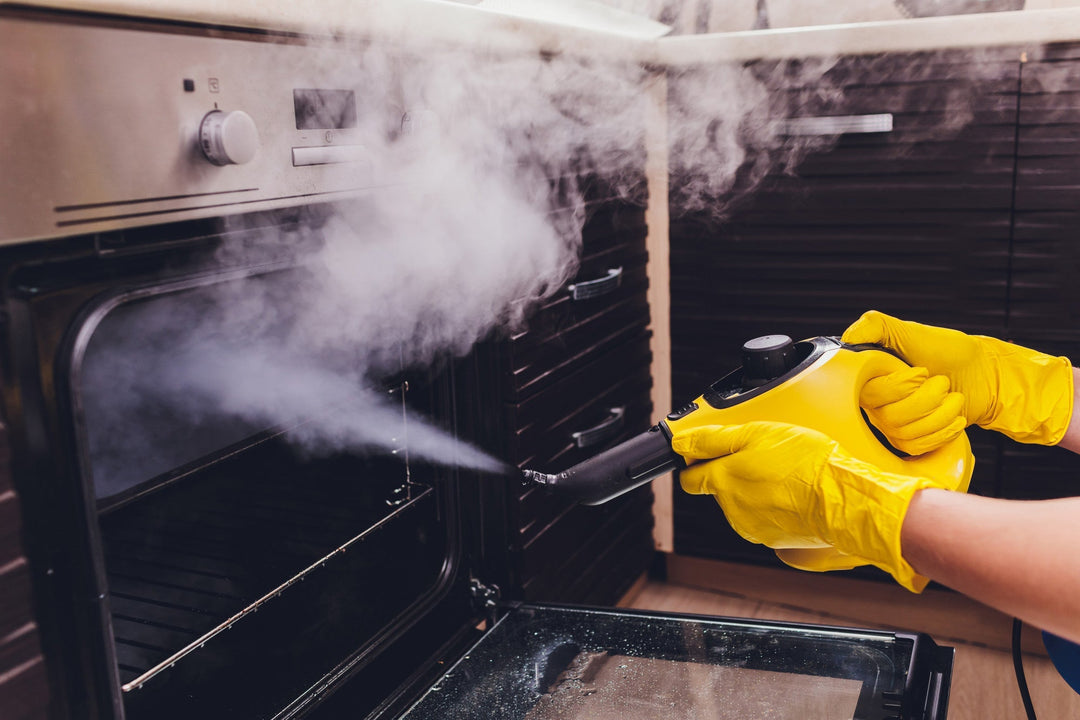Legal Implications of Non-Certified Hood Cleaners
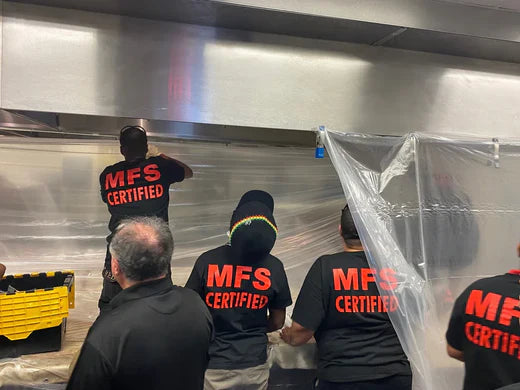
What Are the Legal Risks of Non-Certified Hood Cleaners?
Kitchen exhaust hood cleaning is a critical service for maintaining fire safety and hygiene in commercial kitchens. Proper cleaning techniques, equipment, and protocols are essential to effectively remove grease buildup and prevent potential hazards.
While some may view certification as an optional credential, the legal implications of working with non-certified hood cleaners can be significant. Restaurant owners and cleaning service providers must understand the potential risks and liabilities associated with non-compliance. For further clarity, you can explore FAQs about MFS Trade School certifications.
In this article, we'll explore the legal requirements for hood cleaners, the consequences of hiring non-certified professionals, and the steps restaurant owners can take to ensure compliance and protect their businesses.

What Are the Legal Requirements for Hood Cleaners?
The National Fire Protection Association (NFPA) has established NFPA 96 as the benchmark for commercial kitchen exhaust system maintenance. This standard outlines the requirements for the design, installation, inspection, and cleaning of these systems to minimize fire risks. However, the enforcement of NFPA 96 varies by jurisdiction, with some states and localities adopting it as law while others treat it as a guideline.
For example, Massachusetts has implemented a state certification requirement for hood cleaners, largely in response to a devastating fire that resulted in significant damage and the loss of two firefighters' lives. Other states may not have such specific requirements, but local fire marshals and building codes often dictate the legal obligations for hood cleaning professionals.
To navigate this complex regulatory landscape, it's crucial for hood cleaners and restaurant owners to familiarize themselves with the specific requirements in their area. This may involve:
-
Consulting with local fire marshals and building code officials
-
Reviewing state and local laws pertaining to kitchen exhaust system maintenance
-
Understanding the insurance policy requirements for hood cleaning services
Failing to comply with these legal requirements can lead to serious consequences—from fines and penalties to denied insurance claims and potential liability in the event of a fire. By working with certified hood cleaners who understand and adhere to the relevant regulations, restaurant owners can protect their businesses and demonstrate due diligence in maintaining a safe kitchen environment, emphasizing the value of certifications in compliance. Training programs, such as MFS Trade School, can provide aspiring hood cleaners with the knowledge and skills needed to navigate these legal complexities and deliver compliant, effective services to their clients. For those seeking practical certification, hands-on training for kitchen exhaust hood cleaning is an excellent option.
How Does Certification Impact Insurance and Liability?
Certification serves as a crucial factor in the insurance policies of restaurant owners and cleaning service providers. For individuals unable to attend in-person training, an online kitchen exhaust hood cleaning course offers a flexible alternative to gain certification. Certification serves as a crucial factor in the insurance policies of restaurant owners and cleaning service providers, highlighting the importance of professional certification.
Insurance companies often stipulate that hood cleanings be carried out by certified professionals to ensure policy validity. This requirement stems from the assurance that certified cleaners have undergone thorough training, which reduces the risk of fire-related incidents due to improper cleaning.
Trained hood cleaners adhere to rigorous industry standards, which align with the safety protocols valued by insurers. These professionals are equipped to meet specific cleaning guidelines, ensuring that all components of the exhaust system are efficiently maintained. By opting for certified cleaners, restaurant owners can significantly reduce the risk of liability, as proper cleaning minimizes the potential for grease accumulation and related hazards. In the case of an incident, documented certified cleanings can demonstrate a proactive approach to maintaining safety.
Without certification, the terms of insurance can become unfavorable. Cleaners lacking certification may not only fall short of meeting necessary standards but also encounter increased insurance premiums because of the heightened risk they present. In some situations, insurers may refuse coverage, leaving businesses exposed to considerable financial risks. For restaurant operators, selecting certified hood cleaners is not merely a compliance issue but a strategic measure to protect their enterprise and financial interests.
Ensuring Alignment with Hood Cleaning Regulations
Ensuring alignment with hood cleaning regulations involves several strategic actions for restaurant owners. The process begins with a thorough assessment of potential cleaning service providers. For business owners seeking additional support, hands-on exhaust cleaning coaching for business owners can provide deeper insights into compliance and operational excellence. Owners should confirm that these providers hold any necessary local certifications and have adequate insurance coverage. This verification step ensures that the cleaning service operates within the legal framework set by regulatory authorities and provides the restaurant with a layer of protection against potential liabilities or claims.
Maintaining comprehensive records of each cleaning is crucial for restaurant operators. These records should document the service date, the specific tasks completed, and any notable observations about the exhaust system's condition. By organizing these records, restaurant owners can readily demonstrate adherence to safety standards during inspections. This documentation also aids in evaluating maintenance schedules and planning future service intervals.
Regular visual inspections by the restaurant staff complement professional services. Staff should be empowered to perform periodic checks on the exhaust system to catch grease buildup before it becomes hazardous. This approach not only supports adherence to regulations but also maximizes the efficiency of kitchen operations and equipment.
Proactive Measures
To sustain compliance, restaurant owners should establish a proactive maintenance routine. This involves setting up a cleaning schedule that considers the kitchen's cooking volume and operational demands. High-activity kitchens might necessitate more frequent cleanings to address increased grease accumulation, while smaller operations could follow a less frequent routine.
Educating kitchen staff about basic maintenance tasks can significantly enhance compliance efforts. For those looking to learn independently, an online self-study exhaust hood cleaning course is a convenient and affordable way to gain the necessary skills and certification. Training should focus on the upkeep of filters and easily accessible parts of the exhaust system. By equipping staff with this knowledge, owners foster a safety-conscious environment and ensure ongoing attention to potential maintenance issues.

What Are the Benefits of Choosing a Certified Hood Cleaner?
Certified hood cleaners possess specialized training and utilize equipment designed for thorough maintenance of kitchen exhaust systems, showcasing the importance of certifications for accountability and measurable results. They ensure compliance with industry standards, effectively removing grease to minimize fire hazards. By hiring certified professionals, restaurant owners can expect a level of meticulous care that prevents operational disruptions and mitigates potential liabilities associated with inadequate maintenance.
In addition to standard cleaning, certified providers often extend their services to include maintenance of exhaust fans and inspections of fire suppression systems. These additional offerings are vital for maintaining a secure cooking environment. Engaging certified cleaners equips restaurant owners with comprehensive solutions that enhance the longevity of kitchen equipment and support adherence to fire safety regulations. This holistic approach not only addresses immediate cleaning needs but also contributes to the long-term stability of kitchen operations.
Peace of Mind
Engaging certified hood cleaners reflects a commitment to upholding the highest safety standards in kitchen maintenance. This decision supports a proactive approach to managing potential risks, as certification ensures that cleaners have the required expertise to effectively handle the task. Restaurant owners gain confidence in knowing their exhaust systems are maintained by skilled professionals, alleviating concerns about fire hazards or compliance issues. This assurance allows businesses to concentrate on their operations, free from the burden of unexpected maintenance challenges or regulatory complications.
Investing in certified hood cleaning services is a strategic decision that safeguards your restaurant, ensures compliance, and supports the longevity of your kitchen equipment. By prioritizing safety and adhering to industry standards, you demonstrate a commitment to your staff, customers, and the long-term success of your business. If you're looking to start or grow your own cleaning business, we invite you to explore and enroll in our training courses to gain the skills and knowledge needed to deliver exceptional, compliant services to your clients.
